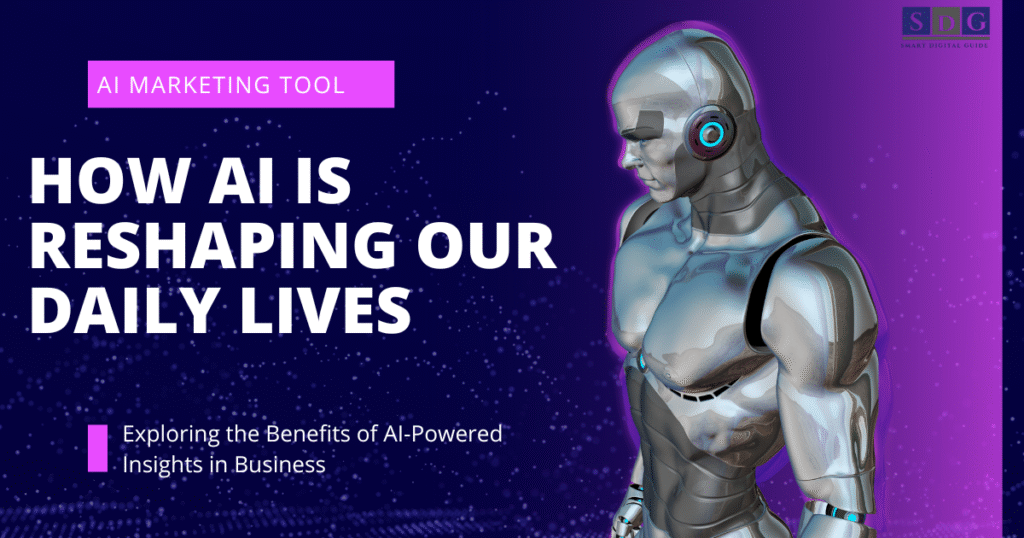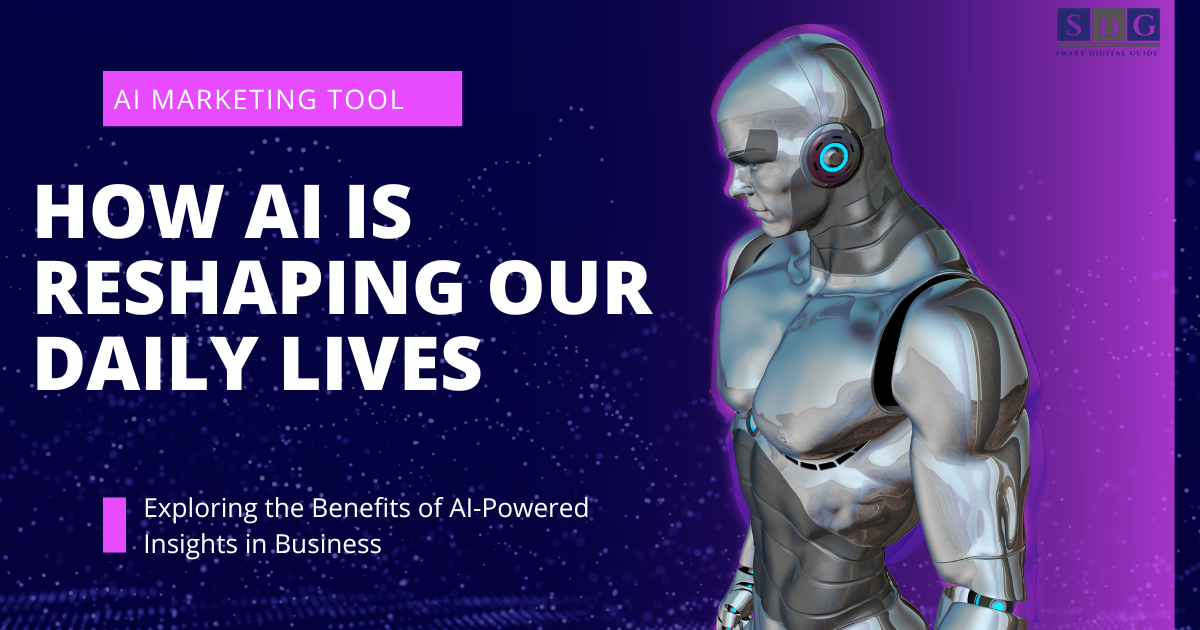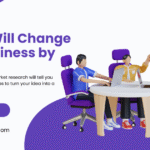In a matter of years, artificial intelligence (AI) has evolved from a concept reserved for the future into a fundamental part of our daily existence. Whether we acknowledge it or not, AI is now integrated into almost every facet of our routines—beginning with how we unlock our phones each morning to the operations of entire metropolitan areas around us. From mobile devices to intelligent cities, AI is not merely altering the instruments at our disposal but also redefining how we live, work, and engage with society.
Let’s delve into how AI is changing our everyday lives, often in subtle ways that go unnoticed.

1. AI at Your Fingertips: Smarter Smartphones
Today, smartphones stand as the most personal and widely utilized devices featuring artificial intelligence. Beyond just making calls and sending texts, they serve as AI-driven centers of intelligence.
- Voice Assistants: Programs such as Siri, Google Assistant, and Alexa utilize natural language processing (NLP) to comprehend and react to your requests. Whether you need to set up reminders, find answers to inquiries, or send messages, these AI-enhanced assistants are available around the clock as your digital support team.
- Camera Improvements: Artificial intelligence enables your smartphone camera to identify faces, assess lighting conditions, and recommend optimal angles or filters. Functions like portrait mode, real-time text translation through the camera lens, and night vision enhancements all rely on AI technology.
- Predictive Text and Autocorrect: Each time your device suggests a forthcoming word or rectifies a misspelling for you, it’s applying artificial intelligence that has been trained on vast amounts of linguistic data. As it adapts to your style over time, texting becomes more efficient and seamless.
2. Home Intelligence: Simplifying Smart Living
Our residences have transformed into smarter, more secure, and energy-efficient spaces, all due to advancements in AI technology.
- Intelligent Appliances: From fridges that recommend recipes based on their contents to washing machines that modify cycles according to fabric types, AI is enhancing the convenience of home life.
- Virtual Assistants: Devices such as Google Nest and Amazon Echo serve as the hubs for your smart home setup. You can easily turn off lights, modify the thermostat settings, or stream music with straightforward voice commands—thanks to automation powered by AI.
- Surveillance Systems: Cameras with AI capabilities are now able to recognize faces, identify unusual activity, and notify you instantly. Some systems can even differentiate between people, animals, and vehicles to minimize false alerts.
3. AI in Motion: Enhanced Travel and Navigation
Artificial Intelligence is essential to our mobility.
- Mapping Applications: Google Maps and Waze leverage AI to assess traffic conditions and recommend the quickest paths. They account for real-time factors like congestion, construction activities, and collisions.
- Ride-Sharing Platforms: Services such as Uber and Ola employ AI algorithms to connect drivers with riders, calculate prices, and forecast arrival times.
- Public Transport Systems: Cities are utilizing AI to enhance bus and train timetables, anticipate delays, and boost overall operational effectiveness. Additionally, many metropolitan areas utilize AI for contactless ticketing solutions and crowd control mechanisms.
4. AI in Healthcare: Enhanced, Rapid, and Safer Treatment
Artificial Intelligence is revolutionizing the healthcare sector by making it more individualized and preventive.
- Wearable Technology: Devices such as smartwatches and fitness trackers employ AI to track heart rates, sleep quality, and physical activity levels. They can also identify early warning signs of health problems and alert users to take necessary steps.
- Medical Evaluation: AI has the capability to scrutinize scans, X-rays, and laboratory results more swiftly and precisely than many human experts. Tools like IBM Watson are aiding physicians in diagnosing uncommon ailments and suggesting treatment options.
- Virtual Health Assistants: AI-powered chatbots are increasingly utilized for scheduling appointments, reminding patients about their medications, and providing initial guidance based on reported symptoms.
5. AI in the Workplace: Enhancers of Productivity and Creativity
AI is reshaping jobs rather than eliminating them.
- Streamlining Repetitive Duties: In work environments, AI streamlines tasks such as data input, scheduling, customer support, and additional functions. This allows human workers to focus on strategic and creative endeavors.
- Content Creation: Tools like ChatGPT, Jasper, and similar platforms are assisting writers, marketers, and designers in brainstorming ideas, crafting drafts, and refining content.
- Hiring Processes: Human Resources teams are leveraging AI technology to review resumes, narrow down candidates for interviews, and assess applicants’ responses through facial recognition and voice analysis.
6. AI in Urban Areas: Creating the Smart Cities of the Future
Smart cities harness artificial intelligence and IoT (Internet of Things) technologies to enhance resource management and elevate living standards.
- Traffic Control: AI-driven algorithms track traffic patterns, regulate smart traffic signals, and alleviate congestion. In metropolitan areas like Singapore and Barcelona, systems utilizing AI adjust traffic lights in real-time.
- Energy Optimization: Artificial intelligence oversees electricity and water consumption, identifies leaks, and regulates energy distribution. Intelligent grids maintain a balance between supply and demand in real-time, resulting in savings on both costs and energy usage.
- Waste Management: AI assists municipalities in optimizing garbage collection routes, spotting recycling trends, and reducing landfill contributions.
- Public Safety: Facial recognition technology powered by AI supports law enforcement efforts, monitors unusual crowd movements at public gatherings, and enhances emergency response coordination.
Concerns Regarding Ethics and Privacy
As artificial intelligence becomes increasingly integrated into our daily routines, the issues surrounding ethics, bias, and privacy are intensifying.
- What volume of data is being gathered?
- Who possesses that information?
- How can we safeguard against the misuse of facial recognition or deepfake technologies?
The development of responsible AI must prioritize transparency, equity, and the safeguarding of privacy. Collaborative efforts between governments, corporations, and individuals are essential to establish a framework wherein AI enhances human existence without infringing upon fundamental rights.
Conclusion: Welcoming a Future Shaped by AI
AI has transitioned from science fiction to an unseen force driving the tools and systems on which we depend every day. From your smartphone to smart cities—impacting everything from your morning alarm to evening Netflix suggestions—AI is quietly yet profoundly transforming our lives.
Thriving in this AI-centric landscape requires not trepidation but rather awareness. By grasping how AI operates and influences our existence, we can harness its advantages while remaining vigilant about its potential drawbacks.
Whether you’re interacting with a touch screen or navigating through an intelligent urban environment, keep in mind: the future isn’t just approaching—it’s already woven into our reality.









